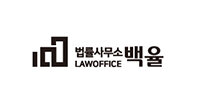Best Divorce & Separation Lawyers in South Korea
Share your needs with us, get contacted by law firms.
Free. Takes 2 min.
Free Guide to Hiring a Family Lawyer
Or refine your search by selecting a city:
List of the best lawyers in South Korea
About Divorce & Separation Law in South Korea
In South Korea, divorce is governed by the Civil Act, which recognizes both consensual and judicial divorces. Consensual divorce is when both parties agree to the separation terms, while judicial divorce occurs when partners cannot reach an agreement, requiring court intervention. South Korea also recognizes separation as a status distinct from divorce, where spouses live apart but remain legally married. The process can involve complex considerations, including property division, child custody, and alimony, making legal counsel essential for many.
Why You May Need a Lawyer
Succeeding in divorce or separation procedures in South Korea can be challenging without adequate legal representation. Lawyers can provide assistance in several critical areas:
- Negotiating terms of consensual divorce, such as division of assets, custody, and alimony.
- Representing you in court during a judicial divorce, especially if the divorce is contested.
- Navigating cross-border divorce issues if one spouse is a foreign national.
- Addressing additional complexities around the division of marital property and business interests.
- Ensuring fair and equitable child custody and support agreements.
Local Laws Overview
Key aspects of South Korea's divorce laws include:
- Grounds for Judicial Divorce: Accepted grounds include adultery, malicious desertion, extreme maltreatment by a spouse or in-laws, and irreconcilable differences.
- Property Division: Assets acquired during the marriage are subject to equitable distribution, with courts considering each spouse's contribution.
- Child Custody: Decisions are based on the child's best interests, with the possibility of shared custody. Child support calculations consider the financial situations of both parents.
- Alimony: Temporary or long-term alimony may be granted, depending on the marriage's duration and each spouse's financial standing.
- Waiting Periods: A mandatory mediation process and cooling-off period may be required to encourage reconciliation before finalizing a divorce.
Frequently Asked Questions
What are the requirements for consensual divorce in South Korea?
Both spouses must agree on the divorce and terms regarding children, property, and financial support. The marriage registration office must process the agreement.
How long does it take to finalize a divorce in South Korea?
A consensual divorce can take a few months, including a waiting period, while a contested divorce can take a year or more due to court proceedings.
Can foreigners get divorced in South Korea?
Yes, foreigners can get divorced in South Korea. Determining the applicable law may depend on nationality and residence, thus requiring legal consultation for clarity.
What is the role of mediation in the divorce process?
Mediation is often a mandatory step intended to help resolve disputes and encourage reconciliation before proceeding to court, especially in contested divorces.
Can child support be modified after a divorce is finalized?
Yes, if there are significant changes in circumstances, such as income, either parent can request the court to modify child support agreements.
What happens if one spouse refuses to agree to a divorce?
If a consensual agreement cannot be reached, the spouse seeking divorce may file for judicial divorce on the recognized grounds stipulated by Korean law.
Who decides child custody arrangements?
Child custody is determined by the court, focusing on the child's best interests and considering the parents' abilities to provide care and a stable environment.
How is property divided in a divorce?
Property acquired during the marriage is subject to equitable distribution. The court considers each spouse's contributions to marital property.
Are pre-marital assets subject to division upon divorce?
Generally, pre-marital assets are not subject to division. However, any appreciation or income derived from such assets during the marriage may be considered.
What is the process for appealing a divorce decision?
A dissatisfied party can appeal a family court decision within the prescribed time limits. Legal guidance is crucial to navigate the appeals process effectively.
Additional Resources
Several resources can assist those navigating divorce and separation in South Korea:
- Ministry of Gender Equality and Family
- Korean Bar Association for finding qualified divorce lawyers
- Family Court for cases related to divorce and child custody
- Local legal aid centers offering support to those in need
Next Steps
If you need legal assistance with divorce or separation, consider taking the following steps:
- Schedule a consultation with several family law attorneys to find one with expertise and whom you feel comfortable with.
- Prepare detailed documentation related to marital assets, income, and child arrangements to provide your lawyer with essential information.
- Engage in open dialogue with your spouse to explore consensual settlement options, potentially saving time and legal costs.
- Familiarize yourself with South Korean family law to better understand your rights and obligations.
Lawzana helps you find the best lawyers and law firms in South Korea through a curated and pre-screened list of qualified legal professionals. Our platform offers rankings and detailed profiles of attorneys and law firms, allowing you to compare based on practice areas, including Divorce & Separation, experience, and client feedback.
Each profile includes a description of the firm's areas of practice, client reviews, team members and partners, year of establishment, spoken languages, office locations, contact information, social media presence, and any published articles or resources. Most firms on our platform speak English and are experienced in both local and international legal matters.
Get a quote from top-rated law firms in South Korea — quickly, securely, and without unnecessary hassle.
Disclaimer:
The information provided on this page is for general informational purposes only and does not constitute legal advice. While we strive to ensure the accuracy and relevance of the content, legal information may change over time, and interpretations of the law can vary. You should always consult with a qualified legal professional for advice specific to your situation.
We disclaim all liability for actions taken or not taken based on the content of this page. If you believe any information is incorrect or outdated, please contact us, and we will review and update it where appropriate.
Browse divorce & separation law firms by city in South Korea
Refine your search by selecting a city.
















